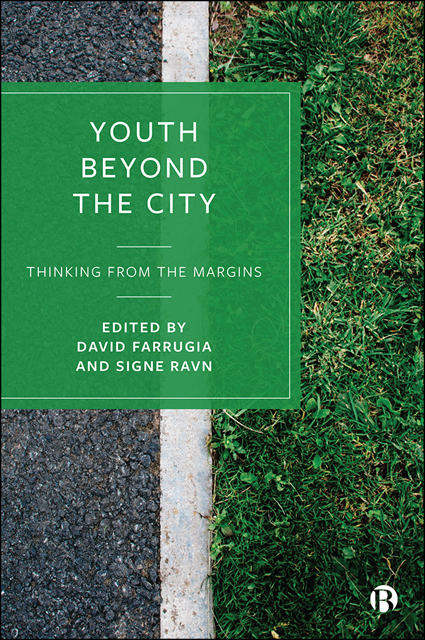Book contents
- Frontmatter
- Contents
- List of Figures and Tables
- Notes on Contributors
- Introduction: Thinking from the Margins
- Part I Inequalities: Education and Aspiration on the Margins
- Part II Materialities: Spatiality and Sensory Embodiment
- Part III Identities: Mobility, Rootedness and Belonging
- Part IV Temporalities: Historicizing Space and Place
- Index
10 - Places of Belonging, Places of Detachment: Belonging and Historical Consciousness in Narratives of Rural Finnish Girls
Published online by Cambridge University Press: 13 October 2022
- Frontmatter
- Contents
- List of Figures and Tables
- Notes on Contributors
- Introduction: Thinking from the Margins
- Part I Inequalities: Education and Aspiration on the Margins
- Part II Materialities: Spatiality and Sensory Embodiment
- Part III Identities: Mobility, Rootedness and Belonging
- Part IV Temporalities: Historicizing Space and Place
- Index
Summary
Introduction
The depopulation of rural areas has been a long-standing phenomenon in Northern Scandinavia, including Finland, where school closures and the centralization of services have challenged the lives of young people (Karlsen Back and Paulgaard, 2012; Paulgaard, 2015; Armila et al, 2018; Öhrn and Beach, 2019). Out-migration concerns particularly young women from sparsely populated rural areas. The ‘rural exodus’ of young women – to borrow the term used by Swedish researcher Mats Johansson (2016) – can be detected particularly among people aged 18– 29, which points at close connections between migration and education as well as movement to more female-friendly labour markets. In the media, the out-migration of young women is often labelled as a straightforward threat to the future of rural communities and lifestyles (Käyhkö, 2017; Sireni et al, 2017, p 31).
While recognizing that mobility is a necessity for many rural young women (see Corbett, 2007; Farrugia, 2016) to pursue education or work opportunities at some point in their lives, in this chapter we hope to pay attention to some other elements involved in the processes of building a sense of belonging – or not belonging – in rural places. We agree with those youth researchers who have underlined the importance of seeking more holistic perspectives that allow for a deeper analysis of the complexities that characterize the experiences of rural young people in various non-urban locations (Corbett, 2007; Cuervo and Wyn, 2012, 2017; Farrugia, 2014). Growing roots in the local community is often interpreted as a hindrance to social progress. However, as this chapter demonstrates, questions revolving around belonging are far from straightforward. Young people may express strong belonging in their rural home area or local culture while also recognizing its social problems and appreciating the benefits of city life. In recent years, more attention has been given to rural young people's positive identification with their home places (for example Corbett, 2013; Stockdale and Haartsen, 2018; Morse and Mudgett, 2018; Tuuva-Hongisto, 2018; Rönnlund, 2019).
Methodologically, this chapter represents sociologically informed cultural history
- Type
- Chapter
- Information
- Youth beyond the CityThinking from the Margins, pp. 195 - 214Publisher: Bristol University PressPrint publication year: 2022
- 1
- Cited by



